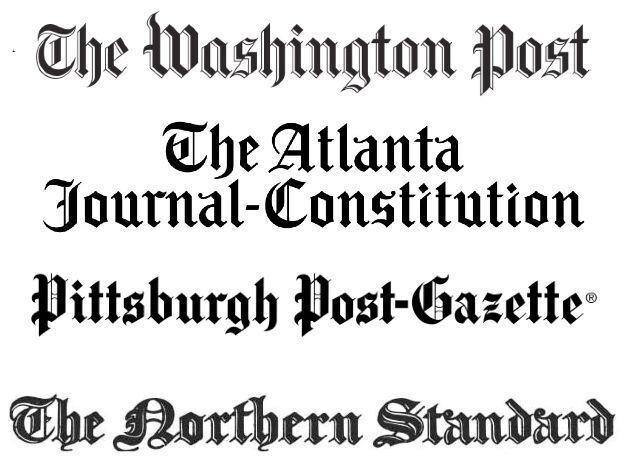Economics is often made far too complicated. Talk of bonds, gilt yields, and fiscal multipliers often dull even the sharpest of minds.
Yet, what “experts” never tell you is that most meaningful macroeconomic equations can be done on the back of an envelope. The United Kingdom spends far more than it collects, with Northern Ireland being a major contributor to that unsustainable equation. However, within that imbalance may lie a formula for solving the historic Irish question: how can 26+6=1?
The U.K.’s fiscal imbalance is fast approaching a cliff’s edge. The price of borrowing is increasing, government spending is at an all-time high, and they are now struggling to maintain a tax base with rising rates and an ailing economy. The result is that more borrowing is needed just to service existing debt, which further undermines investor confidence, raising borrowing costs again - a vicious cycle, known ominously on Wall Street as a “debt doom loop."
Economic growth through international trade and investment is often the key to resolving sovereign debt crises. Ireland emerged as a leading global economy after the Celtic Tiger and the IMF bailout, thanks largely to strong international relations and significant investment from multinationals seeking access to the European market.
This is an unlikely solution for the British government, which voluntarily abandoned the world’s largest free-trading bloc and, in the process, damaged its credibility by threatening to break several international treaties on the way out. A performance that left few international partners auditioning for a sequel.
This leaves the British government's Chancellor of the Exchequer with a stark choice: slash government spending or print money to cover debt, with significant inflation and higher interest rates a definite consequence of the latter.
Both choices carry significant political costs. The Labour government is constrained by its traditional base, which resists any attempt to cut welfare spending, while also trying to manage the Reform Party’s rapid rise in the polls, fueled in part by English frustrations at the disproportionate level of services they receive relative to their taxes. This they feel is being spent for the benefit of others rather than themselves.
Given that no major British party is seeking an electoral mandate in Northern Ireland, combined with the region already receiving a disproportionate share of economic support and the persistent reality that additional funding rarely resolves underlying problems, Northern Ireland is likely to be an easy target for any tough political spending decisions in the near term.
Advocates for Irish reunification must avoid presenting Britain’s indifference to Northern Ireland as an argument for Unity, inadvertently pushing away an already nervous southern demographic providing more cover for the Irish government to cower behind.
Instead, we must seize this moment to modernise the Northern economy in line with that of the Republic by taking inspiration from its Celtic Tiger recovery. Beginning with a more sophisticated use of dual market access provided under the Windsor Framework the region could become a highly attractive base
for international investment, particularly in advanced manufacturing, technology supply chains, and renewable energy- potentially even resolving the Republic’s power needs for data centers.
All above are critical global sectors where, in the age of tariffs, access to global markets drives every international investment decision.
Critical to all this, we must work towards a streamlining of regulations, labour laws, and mutual recognition of qualifications across all levels of education and training, with particular emphasis on apprenticeship programs, which will become increasingly important as we build a new world on AI-driven infrastructure.
Alongside reforms to taxation and public spending, carried out under the political cover provided by Westminster, there is a unique opportunity to prevent future uncertainty for households and avoid disproportionately increasing administrative complexity or social burdens on either economy - issues that are of significant concern to voters.
Even a small amount of progress could reshape skeptical opinion in the South and spark excitement among an eager global diaspora, generating further investment as a result. Momentum which would transition Northern Ireland’s unsustainable dependence on Britain to a self-reinforcing growth loop.
Progress like this may revive the old “cherry picking” Brexit argument. However, it would address many of the challenges facing all three governments regarding Northern Ireland. The European Union would ensure continued regulatory alignment with Britain to maintain the arrangement; the British government would reduce its annual financial support to Northern Ireland, and the Irish government would be incentivized to invest further in the British economy to preserve these benefits in the event of eventual unity - thereby securing the future economic, cultural, and social dependence between our Islands that Unionists hold so dear.
Sound economic policy is the cornerstone of a prosperous society. When applied correctly, it can build economic and social bridges between Dublin, Belfast, Boston, and beyond. When mismanaged, in the worst case, it erects walls between communities - a universally recognized tombstone found in failed societies across the world. Taking the right steps now could provide the most significant momentum toward genuine Irish independence since 1916. To do so our generation must remember that in times of crisis, England's difficulty is Ireland's opportunity.
Dylan Egan, originally from Dublin, is an Investment Banking Research Associate in New York City and serves as an advisor to Ireland’s Future in the USA.









